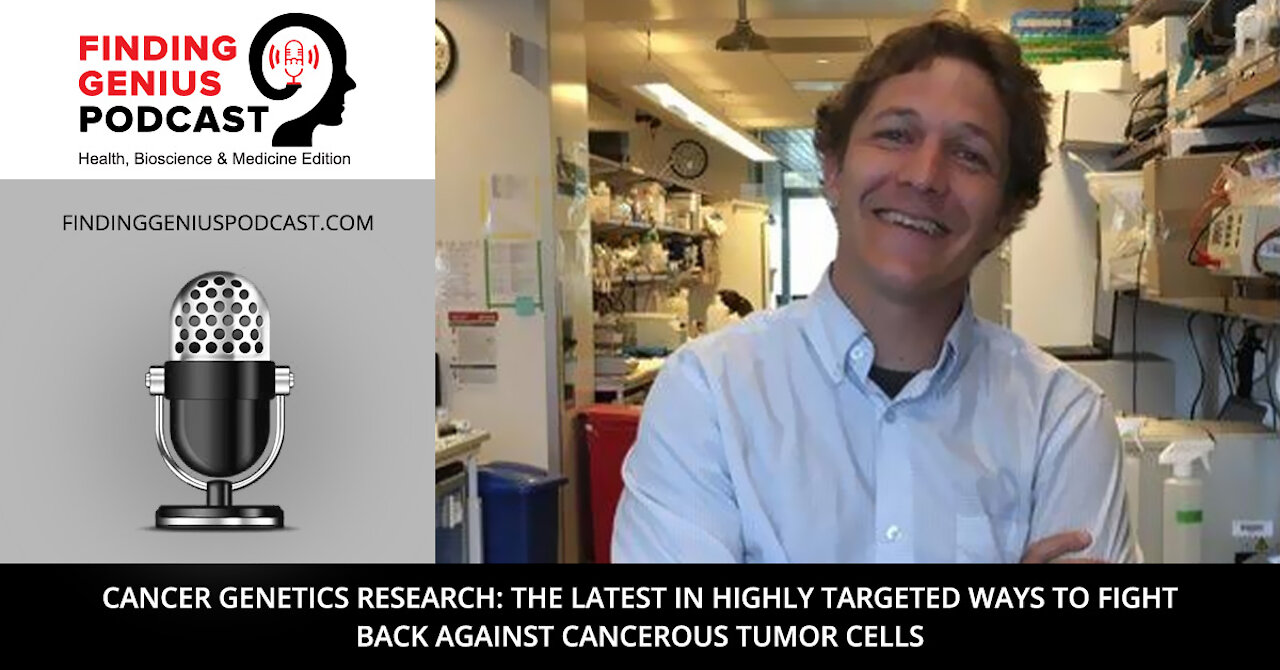Premium Only Content

The Latest in Highly Targeted Ways to Fight Back Against Cancerous Tumor Cells
Are customized cancer treatments a real possibility? Benjamin D. Hopkins, Ph.D. is Assistant Professor of Genomics and Genetic Sciences, Oncological Sciences, and the co-leader of the Functional Genomics Pipeline at The Tisch Cancer Institute. His cancer genetics research has developed an automated screening platform that can be used to identify tumor-specific drug sensitivities used for highly specialized cancer treatment.
Tune in to learn more about:
Cancer genetics and genomes
What the ability to identify a drug resistance mechanism means for cancer treatment
The importance of the cancer research impact factor when searching for the most accurate information
Dr. Hopkins focuses particularly on lung, breast, and pancreatic cancer, which is one of the 20% of cancers with no specific standard treatment plan. The Functional Genomics Pipeline as a whole screens cancer therapies to identify which types of patients with which types of tumors may be able to benefit from those therapies.
Using cancer genome sequencing, it has become possible to identify tumor-specific vulnerabilities, which can then be exploited for cancer treatment purposes. This includes using one medication to sensitize tumor cells to another medication, as a way to reduce the collateral damage done to healthy cells during cancer treatment.
Knowing exactly which mutational events are driving each specific tumor allows Dr. Hopkins and his team to target the specific mechanisms that tumor relies upon to thrive and multiply. This highly individualized approach in combination with public campaigns such as Breast Cancer Awareness month could lead to a future where cancer is considered a treatable disease across the board.
For more information visit https://labs.icahn.mssm.edu/hopkinslab/
Available on Apple Podcasts: apple.co/2Os0myK
-
 34:02
34:02
FGP
7 days ago🌟 Healing Beyond Limits: Personalized Precision Medicine For Cancer Care & Longevity 🌿🩺✨
24 -
 9:12
9:12
Teens_for_Trump
4 years ago $0.29 earned7 Ways to Fight Back Against Terrible Schools
63315 -
 0:35
0:35
Learn The Law
4 years agoFight Back Against EVIL Democrat Leaders
1.56K5 -
 2:31
2:31
KERO
4 years agoBakersfield continues fight against homelessness
4852 -
 1:42
1:42
KMTV
4 years agoThe Latest on IA's Ongoing Fight Against COVID-19
27 -
 1:33
1:33
Reuters Innovation
4 years agoData apps join fight against pandemic
3401 -
 1:54
1:54
WMAR
4 years agoHelping in the FIGHT against cancer
3181 -
 2:45
2:45
WCPO
4 years agoCommunity rallies to support Cincinnati police officer's fight against brain tumor
48 -
 2:06
2:06
WFTS
3 years agoUS passes grim marker in fight against COVID-19
63 -
 LIVE
LIVE
Benny Johnson
1 hour ago🚨PANIC: Kash Patel FBI Director Confirmation Hearing LIVE Right NOW | Deep State on Life Support
22,413 watching